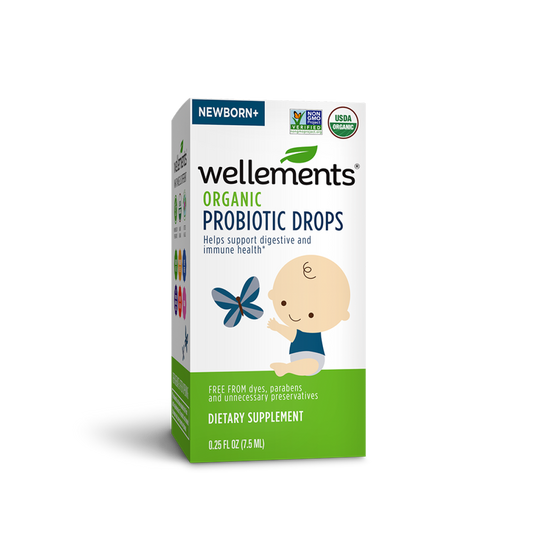Do Newborns Need Probiotics?
| updated:Share

Caring for a newborn comes with many dos and don’ts, many of which pertain to food and beverage safety. As the parent of a newborn, you must understand what is safe to feed your infant and what is not.
If you pay attention to the latest food trends, you know that newborn probiotics are starting to creep into infant food, beverage, and supplement products. These probiotic-containing products claim to boost immunity and relieve symptoms of eczema, colic, and antibiotic-associated diarrhea. While there may be some truth to these claims, it is essential for you, as a parent, to consider what the research says, and the research is out on the effectiveness of probiotics for newborns.
Probiotics
The health field has long recognized probiotics as a healthy bacterium. This bacterium is particularly beneficial to gut health, as it helps balance the harmful bacteria with the good. When the gut is in balance, several beneficial outcomes occur, including a boost in immunity, seamless digestion, and overall improved gut health; probiotics occur naturally in the gut. Still, they can be added in via probiotic-containing foods and supplementation.
Probiotic Benefits
Though no existing health organizations recommend adding probiotics to an infant’s diet, the evidence does suggest that doing so can help in some instances. For example, babies are born with virtually sterile GI tracts, making them more susceptible to stomach distress. Over time, infants eventually build up a balanced and protective colony of gut bacteria. However, probiotics for newborns can help speed up the process and may be beneficial for alleviating symptoms of colic, diarrhea, constipation, and other forms of digestive distress.
Additionally, probiotics may help balance the harmful bacteria in the gut at birth or shortly after that. While many babies are born with sterile GI tracts, several factors may influence the amount and type of bacteria in the gut at birth, including delivery method, the mother’s vaginal health, gestational age, and whether an infant takes antibiotics early in life.
How to Choose the Right Probiotic Supplement
Because a baby’s gut health is so delicate, it is very important to choose a probiotic supplement with extra care because babies' guts and immune systems are still developing and not all products are safe and appropriate. It is also important to choose a product that is formulated with the correct strain that is safe for a newborn. Some guidelines on how to choose the right option for a safe higher-quality supplement are:
- Clean organic formula with no artificial dyes, preservatives or allergens
- Clear labeling with the exact strain and dose expressed in CFUs
- Product expressly formulated for newborns
- Third party testing is a plus
- Refrigeration if required by the strain
You can always discuss the use of probiotics for your infant with your pediatrician before introducing any.
Type of Probiotic Products
There are dozens of infant probiotic products on the market today. Most of them come in one of four forms:
- Drops
- Liquid
- Dissolvable capsules
- Powder
You can add any of these types of probiotics to your infant’s bottle of breastmilk or formula, or you can mix it into their food when they get slightly older.
Gut Friendly Alternatives
Many foods and beverages contain probiotics and prebiotics — compounds that induce the growth of beneficial bacteria in the gut — that you can give your child when they are around six months old or eat yourself. If you breastfeed, your pediatrician may recommend adding these foods to your diet, as the health benefits will transfer to your newborn:
- Cheese
- Yogurt
- Kefir
- Kimchi
- Tempeh
- Miso-containing foods
- Sourdough bread
- Buttermilk
- Kombucha
- Fermented pickles
- Unpasteurized sauerkraut
Once your little one is old enough to start eating solid foods, you may introduce them to each a little at a time.
3.8 /
5.0
(121)
121
total reviews
Probiotic Drops
Sale price
$29.99
Probiotics for a newborn are becoming increasingly popular. If your doctor recommends adding some to your little one’s diet, look for safe and proven probiotic products, such as Wellements Organic Probiotic Drops. If your doctor does not recommend probiotics, add probiotic-rich foods to your diet for your little one’s health.



